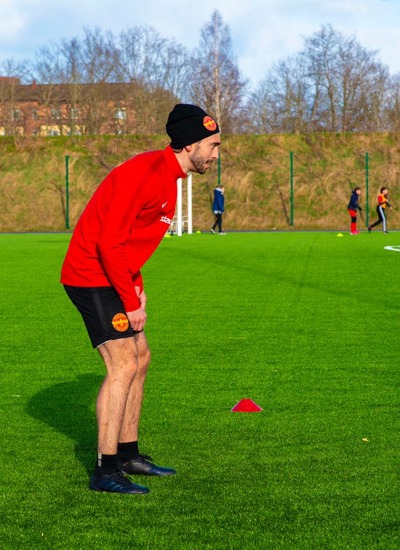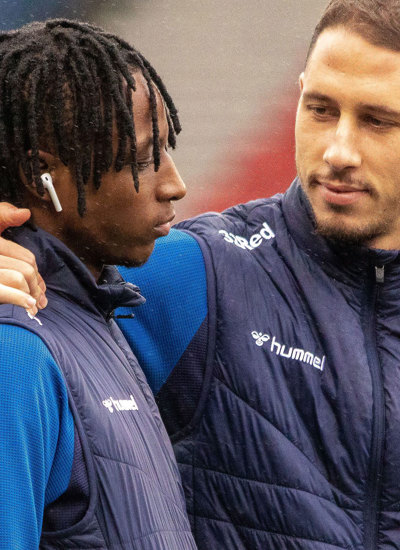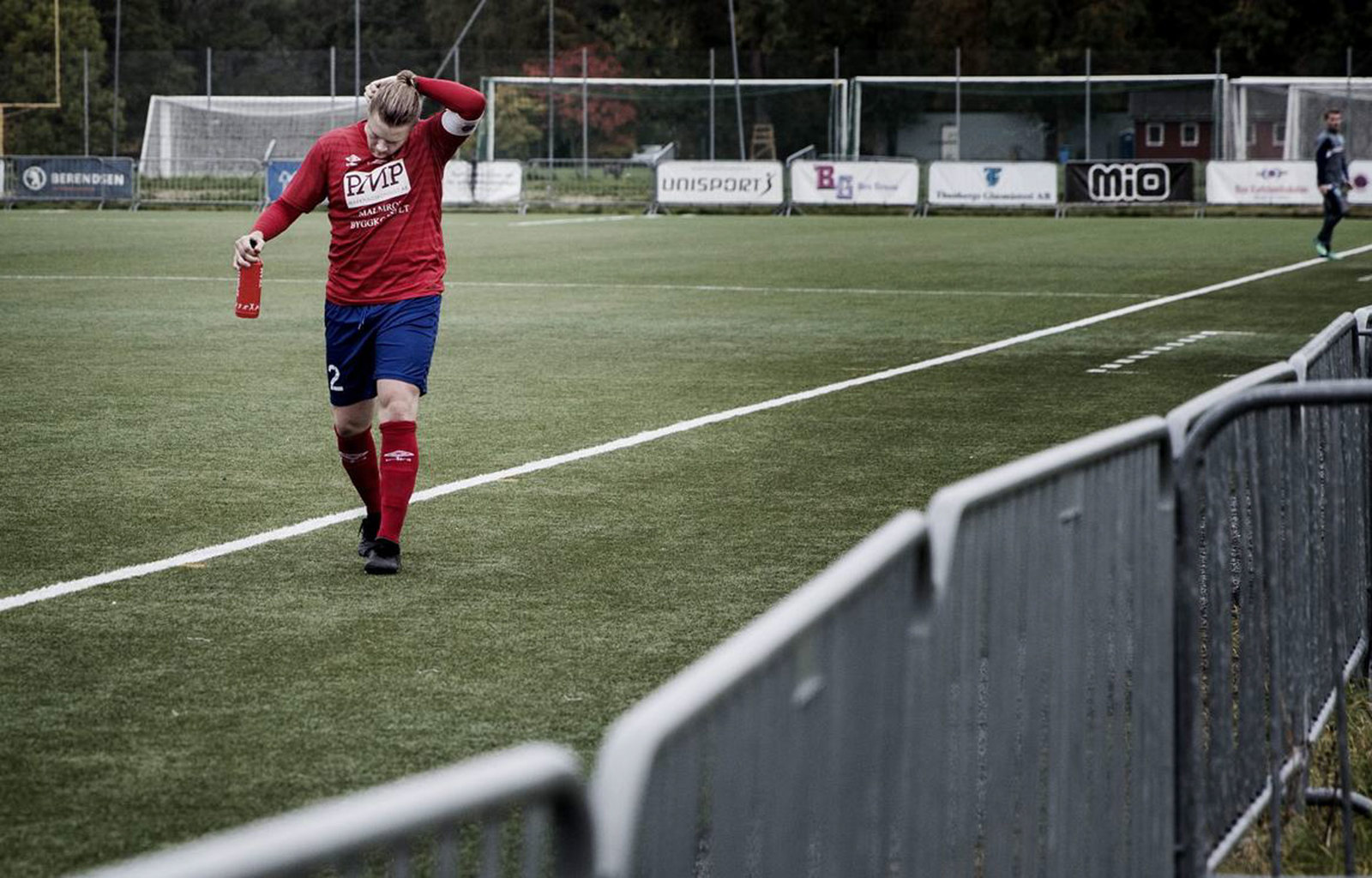
Story by Anton Olsson. Words by Laurie Bell.
I’m club captain of Karlslunds IF HFK in the Swedish third division.
For as long as I can remember, I have suffered from depression and an eating disorder.
It’s still scary for me to share this with you, but in my most depressed moment, I thought about ending my own life.
I’m not writing this for sympathy. I am sharing my story because I know I am not alone. There are many footballers who suffer from mental health problems. However, we rarely talk about them because of the stigma attached.
And if there is one thing I have learned about mental wellbeing, it’s that talking about your problems is the first step towards making them go away.
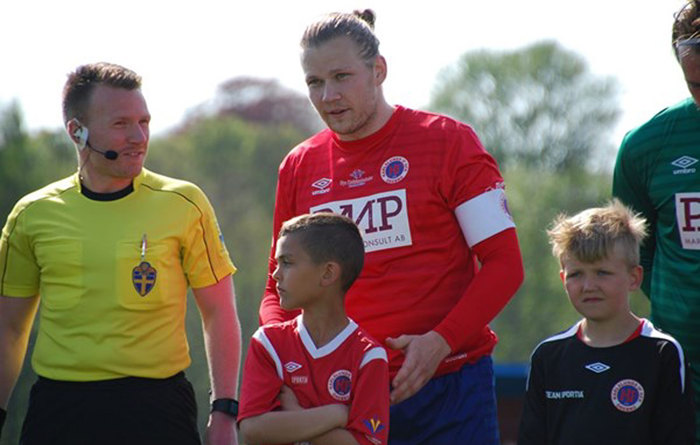
I reached my lowest point just over two years ago.
Karlslunds had just won a crucial playoff match to secure promotion. On the surface, it was the perfect end to a winning year.
Our weekly routine went something like this: train hard Monday to Friday, win on Saturday then celebrate together after the match. When we earned promotion, the parties continued. But then, quite suddenly, we had a break from football and some of my closest friends on the team left town.
After the high of such a successful year, I soon felt low and alone.
Without my teammates or the structure of our football schedule, I felt alone. It wasn’t true – there were people, including family, who I could easily reach out to. Nevertheless, I isolated myself in my apartment, locked the door and sat under blankets on my kitchen floor.
“I was mean to myself, I hit myself in the head and I thought about ending my life”
I am clear in my mind that I never wanted to die, but I was mean to myself. I hit myself in the head and I thought about ending my life.
Finally, I realised there were only two ways forward for me: either I talk to someone and get help or I could end up taking my own life. Thankfully, I found the strength inside me to talk.
First, I spoke to my mum and dad. It was the most emotional conversation I’ve ever had. I shared everything with them and immediately a huge weight lifted from my shoulders. Next, I emailed my local health centre, who invited me to see a doctor right away then referred me to a psychiatrist, who diagnosed me with clinical depression and prescribed therapy and anti-depressant pills.
Later, I was diagnosed with the eating disorder bulimia.
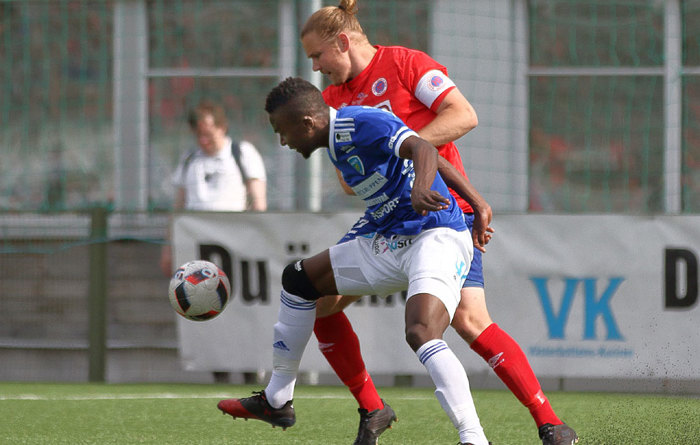
You’ll notice that my journey toward recovery happened away from football. I was afraid to talk about my problems with anybody at my club. I kept it a secret from everybody except my family and doctors.
Because as sportsmen, sometimes it feels like we are not allowed to show when we are weak or vulnerable.
Eventually, I confided in my coach, Jonathan Ederström, who was very supportive.
My hope for other football players is that one day it will be as normal to say, I’m not feeling well mentally today as it is to say I’m feeling pain in my knee, so they can get help in just the same way.
To get there, we need to break down the stigma and show it is not weak to open up about how you feel.
A study of European male professional footballers found that 37% experienced symptoms of anxiety or depression at some point in a 12-month period.
That’s one out of three players. But, honestly, how many have talked openly about it? Even to a teammate?
“Some of my friends were shocked, but everyone seemed to tell me how brave I was and how impressed they were”
I kept quiet, until I gave an interview to a Swedish newspaper about my experiences playing with depression and an eating disorder.
In world football terms, I’m a nobody. But I knew I had a platform in my hometown: the small sports-mad city of Örebro.
I thought if I could help just one other person realise they are not alone, then my story would be worth sharing. I was selfish too: I wanted to free myself from constantly keeping how I felt a secret.
I was really scared when the article was published. I warned my coaches, my girlfriend, and my family about it, but I did not know how my teammates, opponents or the public would react.
The response blew me away. The day it was published, my phone didn’t stop buzzing with calls, texts, and kind messages on Twitter, Facebook and Instagram.
Everyone at my club was completely supportive. Countless current and former teammates reached out to me. Some of my friends were shocked, but everyone seemed to tell me how brave I was and how impressed they were.
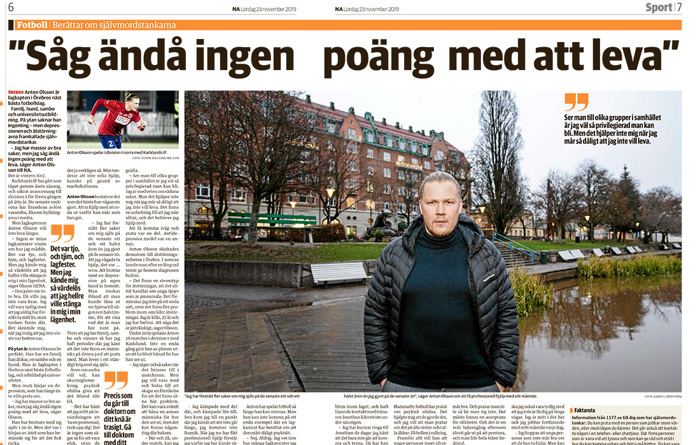
Football players from teams in almost every league in Sweden thanked me for sharing my story and starting a conversation around mental wellbeing. To my surprise, several players I didn’t even know privately opened up to me about their own mental health problems. “We’re in this together,” I told them. “You are not alone. We must talk about this.”
Many major Swedish news outlets picked up my story. Youth social workers and psychologists shared it, telling me how useful it would be for connecting with troubled young males who don’t talk about their feelings. When Daniel Ekvall, the national football team psychologist, retweeted it, I realised, wow, this was big.
I was totally overwhelmed. The reaction proved a couple of things to me:
Firstly, there are many, many more football players than I ever believed experiencing mental health problems.
And, secondly, we all need to talk more about mental health in football.
“I promise, talking about your problems will never make you weak. It’s the strongest thing I’ve ever done.”
As teammates, we can begin by asking each other if we’re okay. At my club, it feels as though there’s a slightly more open culture since the article. It’s like a door has been opened to talking more freely about our problems.
Football federations can also help by making it mandatory for every professional club – not just the top ones – to have someone for players to confide in. Someone who can help players get the professional help they may need.
We can all do our bit.
Anyone reading this feeling unwell, the best way to start feeling better is to talk to someone you trust: a family member, teammate, friend, coach, local health centre or a helpline. I promise, talking about your problems will never make you weak.
It’s the strongest thing I’ve ever done.

